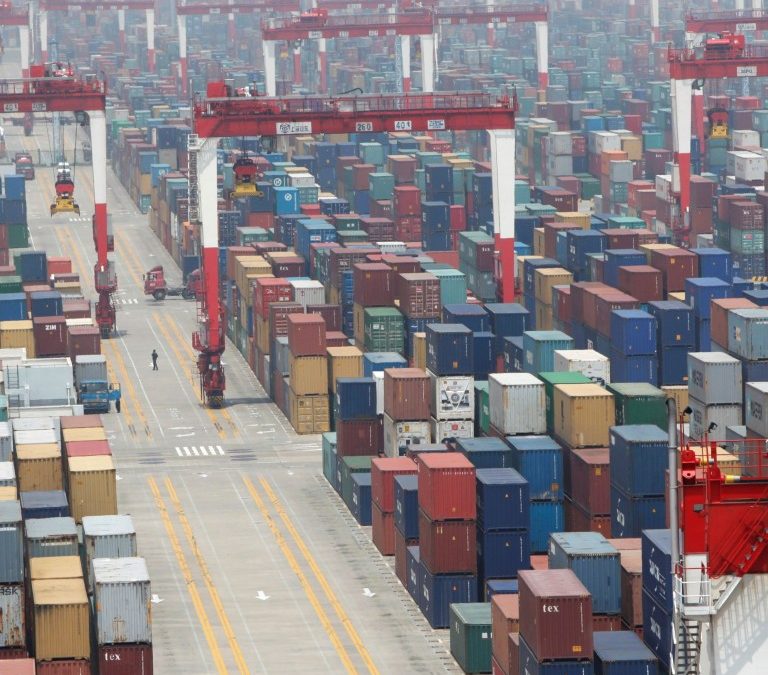The Government has come out with norms for the enforcement of ”rules of origin” provisions for allowing preferential rate of customs duties on products imported under free trade agreements. The new norms have been framed with a view to checking inbound shipments of low quality products and dumping of goods by a third country routed through an FTA partner country.
The Department of Revenue has notified the ”Customs (Administration of Rules of Origin under Trade Agreements) Rules, 2020” which would “come into force on September 21, 2020”.
These rules “shall apply to import of goods into India where the importer makes a claim of preferential rate of duty in terms of a trade agreement,” it said.
The ”rules of origin” provision prescribes for the minimal processing that should happen in the FTA country so that the final manufactured product may be called originating goods in that Country.
Under this provision, a country that has inked an FTA with India cannot dump goods from some third country in the Indian market by just putting a label on it. It has to undertake a prescribed value addition in that product to export to India. Rules of origin norms help contain dumping of goods.
India has inked FTAs with several countries, including Japan, South Korea, Singapore, and ASEAN members.
Under such agreements, two trading partners significantly reduce or eliminate import/customs duties on the maximum number of goods traded between them.
According to the notification, to claim preferential rate of duty under a trade agreement, the importer or his agent, at the time of filing bill of entry, has to make a declaration in the bill that the imported products qualify as originating goods for preferential rate of duty under that agreement; and produce certificate of origin.
The claim of preferential rate of duty may be denied by the proper officer without verification if the certificate of origin is incomplete or has any alteration not authenticated by the issuing authority or the certificate is produced after its validity period has expired, it said.
The importer, it said, also has to possess all relevant information related to country of origin criteria, including the regional value content and submit the same to the proper officer on request.
It also said that an officer may, during the course of customs clearance or thereafter, request for verification of certificate of origin from verification authority where there is a doubt regarding genuineness or authenticity of the certificate for reasons such as mismatch of signatures or seal when compared with specimens of seals and signatures received from the exporting country.
Finance Minister Nirmala Sitharaman in her Budget speech had stated that the Government would review “rules of origin” requirements, particularly for certain sensitive items, “so as to ensure that FTAs are aligned to the conscious direction of our policy”.
She had also said that it has been observed that imports under FTAs are on the rise and undue claims of FTA benefits have posed threat to the domestic industry and such imports require stringent checks.
Commenting on the notification, AMRG & Associates Senior Partner Rajat Mohan said that under the Aatmanirbhar Bharat call, it was important to establish clear, transparent, and fair administration of Rules of Origin under various bilateral trade agreements signed by India with world economies.
“These rules would make it clear for the businesses in India and abroad to know the exact procedures that would be adopted by the proper officer while evaluating the preferential rate of duty under trade agreements and the process for verification of certificate of origin,” he said.
He added that these rules would make it practically impossible for importers to use the preferential rate of duty in case goods are not imported from the target countries under the said trade agreement.
“Rules of Origin are the criteria needed to determine the national origin of a product. Countries which offer zero or reduced duty access to imports from certain trade partners often apply a set of preferential rules of origin to determine the eligibility of products to receive preferential access.
“The role of preferential rules of origin is to ensure that only goods originating in participating countries enjoy tariff or other preferences,” Mohan explained.
He also said that as per the notification, origin related information like country of origin criteria, regional value content and product specific criteria etc. must be possessed by the importer.
EY Tax Partner Abhishek Jain said that the regulations have been framed to check the wrong practice of availing concessional customs duty by routing exports to India through preferential trade countries. “However, practically it may be very difficult for genuine importers to comply with these requirements to avail the benefits,” Jain said.
Under this provision, a country that has inked an FTA with India cannot dump goods from some third country in the Indian market by just putting a label on it. It has to undertake a prescribed value addition in that product to export to India. Rules of origin norms help contain dumping of goods.
India has inked FTAs with several countries, including Japan, South Korea, Singapore, and ASEAN members.
Under such agreements, two trading partners significantly reduce or eliminate import/customs duties on the maximum number of goods traded between them.
According to the notification, to claim preferential rate of duty under a trade agreement, the importer or his agent, at the time of filing bill of entry, has to make a declaration in the bill that the imported products qualify as originating goods for preferential rate of duty under that agreement; and produce certificate of origin.
The claim of preferential rate of duty may be denied by the proper officer without verification if the certificate of origin is incomplete or has any alteration not authenticated by the issuing authority or the certificate is produced after its validity period has expired, it said.
The importer, it said, also has to possess all relevant information related to country of origin criteria, including the regional value content and submit the same to the proper officer on request.
It also said that an officer may, during the course of customs clearance or thereafter, request for verification of certificate of origin from verification authority where there is a doubt regarding genuineness or authenticity of the certificate for reasons such as mismatch of signatures or seal when compared with specimens of seals and signatures received from the exporting country.
Finance Minister Nirmala Sitharaman in her Budget speech had stated that the Government would review “rules of origin” requirements, particularly for certain sensitive items, “so as to ensure that FTAs are aligned to the conscious direction of our policy”.
She had also said that it has been observed that imports under FTAs are on the rise and undue claims of FTA benefits have posed threat to the domestic industry and such imports require stringent checks.
Commenting on the notification, AMRG & Associates Senior Partner Rajat Mohan said that under the Aatmanirbhar Bharat call, it was important to establish clear, transparent, and fair administration of Rules of Origin under various bilateral trade agreements signed by India with world economies.
“These rules would make it clear for the businesses in India and abroad to know the exact procedures that would be adopted by the proper officer while evaluating the preferential rate of duty under trade agreements and the process for verification of certificate of origin,” he said.
He added that these rules would make it practically impossible for importers to use the preferential rate of duty in case goods are not imported from the target countries under the said trade agreement.
“Rules of Origin are the criteria needed to determine the national origin of a product. Countries which offer zero or reduced duty access to imports from certain trade partners often apply a set of preferential rules of origin to determine the eligibility of products to receive preferential access.
“The role of preferential rules of origin is to ensure that only goods originating in participating countries enjoy tariff or other preferences,” Mohan explained.
He also said that as per the notification, origin related information like country of origin criteria, regional value content and product specific criteria etc. must be possessed by the importer.
EY Tax Partner Abhishek Jain said that the regulations have been framed to check the wrong practice of availing concessional customs duty by routing exports to India through preferential trade countries. “However, practically it may be very difficult for genuine importers to comply with these requirements to avail the benefits,” Jain said.
Source:- Daily Shipping Times






